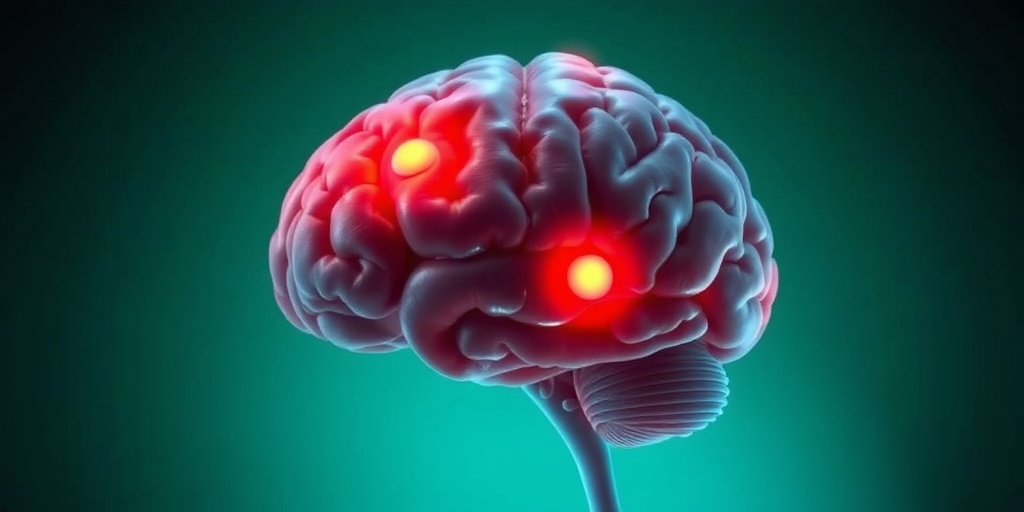What Is High Blood Pressure?
High blood pressure, also known as hypertension, is a common health condition that occurs when the force of the blood against the walls of your arteries is consistently too high. This condition can lead to serious health issues, including heart disease, stroke, and kidney problems. Understanding hypertension is crucial for maintaining overall health and well-being.
Understanding Blood Pressure Readings
Blood pressure is measured in millimeters of mercury (mmHg) and is expressed with two numbers: the systolic pressure (the first number) and the diastolic pressure (the second number). For example, a reading of 120/80 mmHg is considered normal. Here’s what the numbers mean:
- Systolic Pressure: This is the pressure in your arteries when your heart beats.
- Diastolic Pressure: This is the pressure in your arteries when your heart is resting between beats.
According to the American Heart Association, a normal blood pressure reading is below 120/80 mmHg. Hypertension is typically diagnosed when blood pressure readings consistently exceed 130/80 mmHg.
Stages of High Blood Pressure
Hypertension is categorized into different stages, which help in determining the appropriate treatment:
- Stage 1 Hypertension: Blood pressure readings between 130-139 systolic or 80-89 diastolic.
- Stage 2 Hypertension: Blood pressure readings of 140/90 mmHg or higher.
Recognizing these stages is essential for timely intervention and management. If you suspect you have high blood pressure, it’s important to consult a healthcare professional for an accurate diagnosis and treatment plan.
High Blood Pressure Symptoms
High blood pressure is often referred to as a “silent killer” because it usually does not present noticeable symptoms until it has reached a severe stage. However, some individuals may experience certain signs that indicate hypertension. Being aware of these symptoms can help you seek medical advice sooner.
Common Symptoms of Hypertension
While many people with high blood pressure may not experience any symptoms, some may notice:
- Headaches: Frequent or severe headaches can be a sign of elevated blood pressure.
- Dizziness: Feeling lightheaded or dizzy may indicate hypertension.
- Nosebleeds: Unexplained nosebleeds can occur in some individuals with high blood pressure.
- Shortness of Breath: Difficulty breathing during normal activities may be a symptom.
- Chest Pain: This can be a serious symptom and requires immediate medical attention.
When to Seek Medical Attention
If you experience any of the above symptoms, especially chest pain or severe headaches, it’s crucial to seek medical attention immediately. Regular check-ups with your healthcare provider can help monitor your blood pressure and prevent complications associated with hypertension.
Managing High Blood Pressure
Managing high blood pressure involves lifestyle changes and, in some cases, medication. Here are some effective strategies:
- Healthy Diet: Incorporate fruits, vegetables, whole grains, and lean proteins into your meals. The DASH diet (Dietary Approaches to Stop Hypertension) is particularly beneficial.
- Regular Exercise: Aim for at least 150 minutes of moderate aerobic activity each week.
- Limit Alcohol and Tobacco: Reducing alcohol intake and quitting smoking can significantly lower blood pressure.
- Stress Management: Techniques such as meditation, yoga, and deep breathing can help manage stress levels.
For more personalized advice and evidence-based health answers, consider visiting Yesil Health AI. They provide valuable resources to help you understand and manage your health effectively.
In conclusion, understanding high blood pressure (hypertension) and its symptoms is vital for maintaining your health. Regular monitoring and proactive management can help prevent serious complications and improve your quality of life. Stay informed, stay healthy! 🌟

Causes of High Blood Pressure
High blood pressure, also known as hypertension, is a common health condition that can lead to serious complications if left untreated. Understanding the causes of high blood pressure is crucial for prevention and management. Here are some of the primary factors that contribute to this condition:
1. Genetic Factors
Family history plays a significant role in the development of high blood pressure. If your parents or siblings have hypertension, you may be at a higher risk. Genetic predisposition can influence how your body regulates blood pressure and responds to stress.
2. Poor Diet
A diet high in sodium, saturated fats, and processed foods can lead to increased blood pressure. Consuming too much salt can cause your body to retain water, which increases blood volume and, consequently, blood pressure. On the other hand, a diet rich in fruits, vegetables, and whole grains can help maintain healthy blood pressure levels.
3. Lack of Physical Activity
Physical inactivity is another significant contributor to high blood pressure. Regular exercise helps maintain a healthy weight and strengthens the heart, allowing it to pump blood more efficiently. Aim for at least 150 minutes of moderate aerobic activity each week to help keep your blood pressure in check.
4. Obesity
Being overweight or obese increases the strain on your heart and can lead to hypertension. Excess body fat, particularly around the abdomen, can affect how your body regulates blood pressure. Losing even a small amount of weight can help lower your blood pressure significantly.
5. Stress
Chronic stress can contribute to high blood pressure. When you’re under stress, your body releases hormones that can temporarily increase blood pressure. Finding effective stress management techniques, such as meditation, yoga, or deep breathing exercises, can help mitigate this risk.
6. Alcohol and Tobacco Use
Excessive alcohol consumption and smoking are both linked to high blood pressure. Drinking too much alcohol can raise your blood pressure, while smoking damages blood vessels and can lead to hypertension. Reducing or eliminating these habits can significantly improve your overall health.
7. Age
As you age, your risk of developing high blood pressure increases. Blood vessels naturally become stiffer with age, which can lead to elevated blood pressure levels. Regular monitoring and lifestyle adjustments become increasingly important as you grow older.
Risk Factors for Hypertension
Identifying the risk factors for high blood pressure is essential for prevention and early intervention. Here are some key risk factors to be aware of:
1. Age
As mentioned earlier, age is a significant risk factor. Men are more likely to develop hypertension before age 55, while women are at greater risk after menopause. Regular check-ups become crucial as you age.
2. Family History
A family history of hypertension increases your risk. If hypertension runs in your family, it’s essential to monitor your blood pressure regularly and adopt a healthy lifestyle to mitigate this risk.
3. Ethnicity
Certain ethnic groups, particularly African Americans, are at a higher risk for developing high blood pressure. This may be due to a combination of genetic, environmental, and lifestyle factors.
4. Chronic Conditions
Conditions such as diabetes, kidney disease, and sleep apnea can increase your risk of developing hypertension. Managing these conditions effectively is vital for maintaining healthy blood pressure levels.
5. Sedentary Lifestyle
A lack of physical activity is a significant risk factor for hypertension. Incorporating regular exercise into your routine can help lower your risk and improve your overall health.
6. Unhealthy Diet
A diet high in sodium, saturated fats, and sugars can contribute to high blood pressure. Focus on a balanced diet rich in fruits, vegetables, lean proteins, and whole grains to help manage your blood pressure.
7. Stress Management
Chronic stress can lead to unhealthy coping mechanisms, such as overeating or excessive alcohol consumption, which can increase blood pressure. Finding healthy ways to manage stress is crucial for maintaining a healthy lifestyle.
By understanding the causes and risk factors of high blood pressure, you can take proactive steps to manage your health and reduce your risk of hypertension. Regular monitoring and lifestyle changes can make a significant difference in your overall well-being. 🌟

High Blood Pressure Diagnosis
Diagnosing high blood pressure (hypertension) is a crucial step in managing your health. Hypertension often goes unnoticed because it typically doesn’t present any symptoms until it reaches a severe stage. Regular check-ups and awareness of your blood pressure readings can help catch this silent condition early.
Understanding Blood Pressure Readings
Blood pressure is measured in millimeters of mercury (mmHg) and is expressed with two numbers: the systolic (the top number) and the diastolic (the bottom number). For example, a reading of 120/80 mmHg is considered normal. Here’s how to interpret these readings:
- Normal: Less than 120/80 mmHg
- Elevated: Systolic between 120-129 and diastolic less than 80
- Hypertension Stage 1: Systolic between 130-139 or diastolic between 80-89
- Hypertension Stage 2: Systolic 140 or higher or diastolic 90 or higher
- Hypertensive Crisis: Systolic over 180 and/or diastolic over 120
How is Hypertension Diagnosed?
The diagnosis of high blood pressure (hypertension) typically involves the following steps:
- Blood Pressure Measurement: A healthcare provider will measure your blood pressure using a sphygmomanometer. It’s recommended to have multiple readings taken on different days to confirm a diagnosis.
- Medical History: Your doctor will ask about your medical history, including any family history of hypertension, lifestyle factors, and any symptoms you may be experiencing.
- Physical Examination: A physical exam may be conducted to check for signs of hypertension-related complications.
- Additional Tests: In some cases, blood tests, urine tests, or an electrocardiogram (ECG) may be ordered to assess your overall health and identify any underlying conditions.
It’s essential to monitor your blood pressure regularly, especially if you have risk factors such as obesity, a sedentary lifestyle, or a family history of hypertension. Early detection can lead to effective management and reduce the risk of serious complications. 🩺
Complications of Hypertension
If left untreated, high blood pressure (hypertension) can lead to a variety of serious health complications. Understanding these risks is vital for anyone diagnosed with hypertension.
Heart Disease
One of the most significant risks associated with hypertension is heart disease. High blood pressure can cause the arteries to harden and narrow, leading to coronary artery disease, heart attacks, and heart failure. Maintaining a healthy blood pressure is crucial for heart health. ❤️
Stroke
Hypertension is a leading cause of stroke. High blood pressure can cause blood vessels in the brain to burst or become blocked, leading to a stroke. Regular monitoring and management of blood pressure can significantly reduce this risk.
Kidney Damage
The kidneys play a vital role in filtering waste from the blood. High blood pressure can damage the blood vessels in the kidneys, leading to kidney disease or even kidney failure. This is why it’s essential to keep your blood pressure within a healthy range to protect your kidney function. 🧑⚕️
Vision Loss
Hypertension can also affect your vision. High blood pressure can damage the blood vessels in the retina, leading to hypertensive retinopathy, which can cause vision loss. Regular eye exams can help detect any changes early on.
Other Complications
In addition to the above, high blood pressure (hypertension) can lead to:
- Metabolic Syndrome: A cluster of conditions that increase the risk of heart disease, stroke, and diabetes.
- Memory Problems: Reduced blood flow to the brain can affect cognitive function and memory.
- Aneurysms: Increased blood pressure can cause blood vessels to weaken and bulge, leading to potentially life-threatening aneurysms.
Understanding the complications associated with hypertension is crucial for anyone diagnosed with this condition. By managing your blood pressure through lifestyle changes and medication, you can significantly reduce your risk of these serious health issues. 🌟

High Blood Pressure Treatment Options
High blood pressure, also known as hypertension, is a common condition that can lead to serious health issues if left untreated. Fortunately, there are various treatment options available to help manage this condition effectively. Understanding these options is crucial for anyone diagnosed with high blood pressure.
Medications for Hypertension
One of the primary ways to treat high blood pressure is through medication. There are several classes of medications that doctors may prescribe, including:
- Diuretics: Often referred to as “water pills,” these help your body eliminate excess sodium and water, reducing blood volume.
- ACE Inhibitors: These medications help relax blood vessels by blocking the formation of a hormone that narrows them.
- Calcium Channel Blockers: They prevent calcium from entering the heart and blood vessel cells, leading to lower blood pressure.
- Beta-Blockers: These reduce the heart rate and the heart’s output of blood, which lowers blood pressure.
It’s essential to work closely with your healthcare provider to determine the most suitable medication for your specific situation. Regular monitoring and adjustments may be necessary to achieve optimal results.
Alternative Therapies
In addition to conventional medications, some individuals may explore alternative therapies to help manage their high blood pressure. These can include:
- Acupuncture: Some studies suggest that acupuncture may help lower blood pressure by promoting relaxation and reducing stress.
- Herbal Supplements: Certain herbs, such as garlic and hibiscus, have been shown to have a positive effect on blood pressure. However, always consult with a healthcare provider before starting any supplements.
Regular Monitoring
Regularly checking your blood pressure is vital in managing hypertension. Home blood pressure monitors are widely available and can help you keep track of your readings. This information can be invaluable for your healthcare provider in adjusting your treatment plan as needed.
Lifestyle Changes for Managing Hypertension
While medications can be effective, making lifestyle changes is equally important in managing high blood pressure. Here are some key adjustments you can make to improve your overall health and lower your blood pressure:
Healthy Diet
Adopting a heart-healthy diet can significantly impact your blood pressure. Consider the following dietary tips:
- Reduce Sodium Intake: Aim for less than 2,300 mg of sodium per day. This can help lower blood pressure.
- Eat More Fruits and Vegetables: A diet rich in potassium, found in fruits and vegetables, can help balance sodium levels in the body.
- Limit Alcohol Consumption: Drinking alcohol in moderation can help maintain healthy blood pressure levels.
Regular Physical Activity
Engaging in regular physical activity is another effective way to manage high blood pressure. Aim for at least 150 minutes of moderate aerobic exercise each week, such as:
- Walking 🚶♂️
- Jogging 🏃♀️
- Cycling 🚴♂️
- Swimming 🏊♀️
Exercise helps strengthen your heart, allowing it to pump blood more efficiently, which can lower your blood pressure.
Stress Management
Chronic stress can contribute to high blood pressure. Implementing stress-reduction techniques can be beneficial. Consider:
- Meditation: Practicing mindfulness can help calm your mind and reduce stress levels.
- Yoga: This combines physical postures, breathing exercises, and meditation, promoting relaxation.
- Deep Breathing Exercises: Simple deep breathing techniques can help lower stress and improve overall well-being.
By incorporating these lifestyle changes and treatment options, individuals with high blood pressure can take proactive steps toward better health. Remember, always consult with a healthcare professional before making significant changes to your treatment plan or lifestyle. Your journey to managing hypertension is a collaborative effort! 💪

Frequently Asked Questions about High Blood Pressure (Hypertension)
What is High Blood Pressure (Hypertension)?
High blood pressure, also known as hypertension, is a condition where the force of the blood against the artery walls is consistently too high. This can lead to serious health issues, including heart disease and stroke.
What are the symptoms of High Blood Pressure (Hypertension)?
Many people with high blood pressure may not experience noticeable symptoms. However, some common symptoms can include:
- Headaches
- Dizziness
- Nosebleeds
- Shortness of breath
- Flushing
If you experience any of these symptoms, it is important to consult a healthcare professional.
What are the stages of High Blood Pressure (Hypertension)?
High blood pressure is categorized into different stages:
- Stage 1 Hypertension: Systolic BP (130-139 mm Hg) or Diastolic BP (80-89 mm Hg)
- Stage 2 Hypertension: Systolic BP (140 mm Hg or higher) or Diastolic BP (90 mm Hg or higher)
Understanding these stages can help in managing and treating hypertension effectively.
Can High Blood Pressure (Hypertension) cause other health issues?
Yes, high blood pressure can lead to several serious health problems, including:
- Heart attack
- Stroke
- Kidney damage
- Vision loss
It is crucial to manage hypertension to prevent these complications.
How is High Blood Pressure (Hypertension) treated?
Treatment for high blood pressure may include lifestyle changes and medications. Common treatment options include:
- Adopting a healthy diet (e.g., DASH diet)
- Regular physical activity
- Limiting alcohol intake
- Quitting smoking
- Medications prescribed by a healthcare provider
Consulting with a healthcare professional is essential for a personalized treatment plan.
What blood pressure readings indicate Hypertension?
A blood pressure reading of 130/80 mm Hg or higher is generally considered to indicate hypertension. Regular monitoring is important for early detection and management.
Is it possible to reverse High Blood Pressure (Hypertension)?
In some cases, high blood pressure can be managed or even reversed through lifestyle changes, such as maintaining a healthy weight, exercising regularly, and following a balanced diet. However, it is important to work with a healthcare provider for the best approach.
When should I see a doctor about High Blood Pressure (Hypertension)?
If you have consistently high readings or experience symptoms associated with hypertension, it is important to seek medical advice. Regular check-ups can help monitor your blood pressure and overall health.




